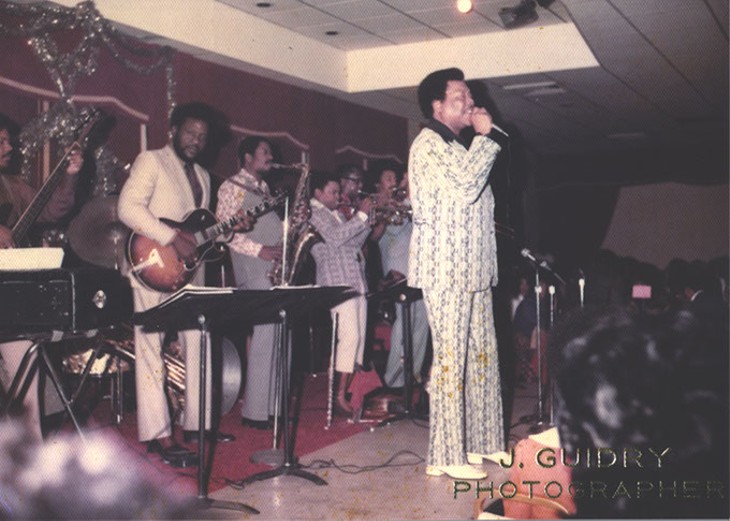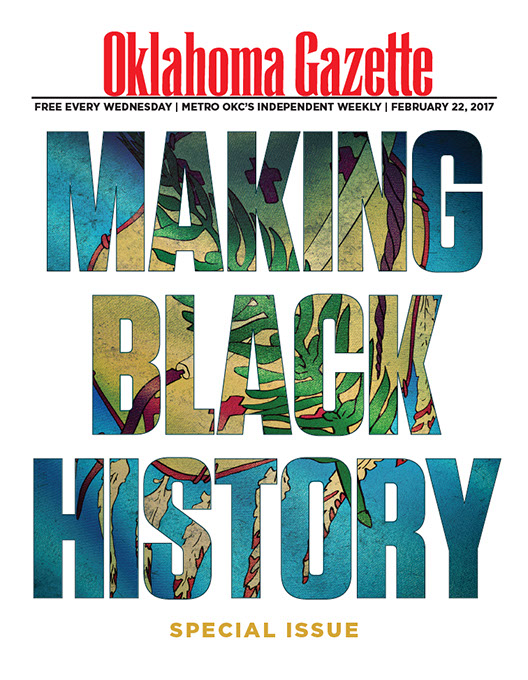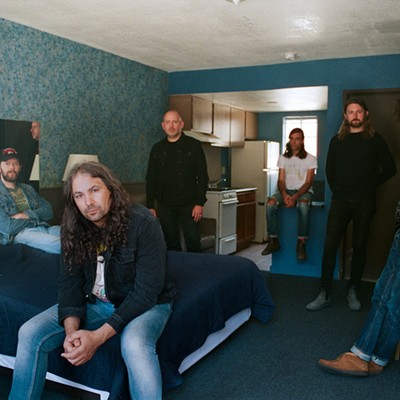Larry O’Dell is working with Oklahoma History Center to interview more than 300 musicians and entertainers from state history, with many more still to go. Each story is useful, but few interviews or subjects are as consistently fruitful as Walter Taylor III.
Taylor, who was featured in a December Oklahoma Gazette story, is a multigenre percussionist who has fought several years to revive old jazz and blues movements and record the music’s great history in the city.
O’Dell, Oklahoma History Center director of special projects, has worked with Taylor for nearly two years to collect stories about the city’s jazz and blues golden age from the musicians who lived the history.
“Walter and I get all kinds of crazy ideas in our heads,” O’Dell said. “We’ve done several programs with him here. He’s always calling me up and saying, ‘You need to interview this guy.’”The historian has collected around 12 stories since the project began in 2015. Each is captured in high-definition.
What will become of the videos is still to be determined. Oklahoma History Center shares its collections with the upcoming Oklahoma Museum of Popular Culture, or OKPOP, a new attraction planned for Tulsa to showcase the state’s great music and entertainment icons.
The interviews might eventually end up at OKPOP, but O’Dell hopes to exhibit them in Oklahoma City in some way, perhaps at the history center, 800 Nazih Zuhdi Drive, or even online.
More important than how the stories are exhibited is that they are recorded. O’Dell said he took on the project in part because firsthand recorded information from that era is so rare and also because he is personally interested in the subject.
“I always liked jazz and blues, so I wanted to save their stories,” he said.
Blues music reached its apex in Oklahoma City during the 1960s and early ’70s. Jazz popularity was fading, but blues was going strong. The Golden Eagle music venue near NE Fourth Street and what is now Martin Luther King Avenue was a hot spot for big-name touring acts like Otis Redding and Ike & Tina Turner. The jazz and blues scene faded from prominence for several different reasons.
“Touring changed; the Golden Eagle shut down,” O’Dell said. “The way people took in music changed.”
Oklahoma is rightfully regarded for great traditions in country, folk and rock music. “With the rise of rock ’n’ roll and this other popular culture that came out of the ’70s, ’80s and ’90s, [jazz and blues] seem to have fallen through the cracks,” O’Dell said.
Over the years, the history center has interviewed Oklahoma musicians like singer Dorothy “Miss Blues” Ellis, Gap Band’s Ronnie Wilson and blues legend D.C. Minner (who died in 2008).
Regarding those musicians who have died since giving their interviews, including guitarist and vocalist “Sir” James Walker Sr., O’Dell said their deaths are reminders of how important it is to chronicle everything they can now from a generation of musicians that is steadily aging — some are in their 70s or older.
O’Dell said one of his biggest takeaways from this project is just how much quality talent was, and still is, present in the city.
“Most of these guys are as talented as anybody else,” he said, “but they had families and this and that and they were making a good living here.”
Print headline: Restored memory, Larry O’Dell and Oklahoma History Center work to preserve the stories of the city’s jazz and blues history.













